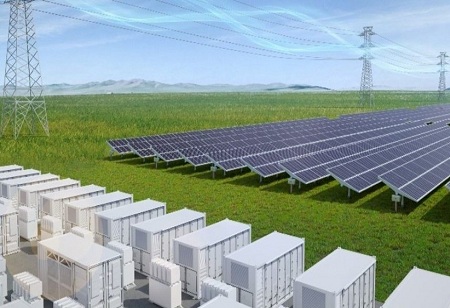Solar PV panels convert solar energy into electricity, while energy storage systems store the
energy for later use. Combining the two technologies can provide a consistent source of renewable energy and reduce dependence on
fossil fuels. This can help reduce emissions and contribute to a healthier environment. Further, this combination of technologies can help reduce energy bills and provide more control over energy use. Furthermore, it can provide energy
security and reliability in the case of a
power outage.
This can also lead to job creation in the
renewable energy sector and stimulate the economy. This, in turn, can result in improved public health and well-being, as well as a reduction in air pollution. All of these factors can have a significant positive impact on society, both in the short and long term. This can lead to a better environment for future generations and help to reduce the effects of climate change. For instance, the installation of solar panels on rooftops in many cities has led to an increase in local jobs and a reduction in air pollution.
A consistent source of renewable energy
Solar PV panels and energy storage when combined can provide an uninterrupted, reliable source of renewable energy. This can help reduce the carbon footprint of cities and save money in the long term. It also offers the potential for households to become energy independent. This can help create a more sustainable future and reduce our reliance on fossil fuels. Solar PV and energy storage systems can be easily installed and maintained, making them a great investment for the future. Solar PV and energy storage systems also provide a low-cost, clean way to generate electricity. They are a great way to reduce energy costs and provide a reliable source of energy for homes and businesses. For instance, solar PV and energy storage systems can be used to power homes, businesses, and public buildings, meaning the cost of energy is significantly reduced and the environmental impact is reduced too.
